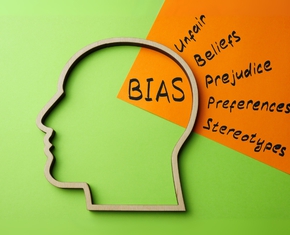The views expressed in our content reflect individual perspectives and do not represent the authoritative views of the Baha'i Faith.
“The winds of despair,” wrote Baha’u’llah, as he surveyed the immediate destinies of humankind, “are, alas, blowing from every direction, and the … signs of impending convulsions and chaos can now be discerned, inasmuch as the prevailing order appears to be lamentably defective.”
The great turmoil of the coronavirus – which transcends every national, racial, and religious boundary and has eclipsed and exacerbated all the other ills besetting the planet – has brought into sharp focus, more so than any other crisis, the need to establish a system of global governance so the world can act as one body concerned for the health and well-being of all humanity.
RELATED: Reflections on the Coronavirus and the Oneness of Humanity
In other words, it is not a vaccine that will save us, but, as Dr. Anthony Fauci warned, it is our willingness to act in a unified manner that will save us.
This vitally important challenge, initially issued by Baha’u’llah in the middle of the 19th century when he called on the world’s political and religious leaders to unite, has now become the central issue of our time, as expressed in The Promise of World Peace, written by the Universal House of Justice, the global governing body of the world’s Baha’is:
Unbridled nationalism, as distinguished from a sane and legitimate patriotism, must give way to a wider loyalty, to the love of humanity as a whole. Baha’u’llah’s statement is: “The earth is but one country, and mankind its citizens.” The concept of world citizenship is a direct result of the contraction of the world into a single neighbourhood through scientific advances and of the indisputable interdependence of nations. Love of all the world’s peoples does not exclude love of one’s country. The advantage of the part in a world society is best served by promoting the advantage of the whole.
The profound recognition of this supra-national patriotism characterized by a wider loyalty, a more all-encompassing embrace of humanity, and a love for the Earth which sustains us all is a direct result of this contraction of the world into a single neighborhood and of the growing interdependence of nations.
But how can we establish a system of global governance which protects the rights of each individual citizen, while maintaining world peace and economic stability?
When a United States Congressman asked Abdu’l-Baha that question in 1912, he answered that the American model of a federated system of states would provide the world with a valuable blueprint for how to unify:
You can best serve your country if you strive, in your capacity as a citizen of the world, to assist in the eventual application of the principle of federalism underlying the government of your own country to the relationships now existing between the peoples and nations of the world.
RELATED: Citizens of One Common Fatherland
The American federal system insures each state has autonomous borders, democratically-elected governments, and the right to make statewide policy in their citizens’ best interests. But they have no right to go to war against one another, to maintain individual armies or to contravene national law. Doesn’t it make sense that this model of federalism, when applied on a global scale, will start us down the road towards a peaceful, harmonious, and prosperous planet?
The impetus that set in motion this inevitable transformation that must take place in order for humankind to survive, nay, thrive, is a new revelation from God brought to us by Baha’u’llah. The Guardian of the Baha’i Faith, Shoghi Effendi, briefly summarized the entire global sweep of this enormous process of transformation in his book The Promised Day is Come:
God’s purpose is none other than to usher in, in ways He alone can bring about, and the full significance of which He alone can fathom, the Great, the Golden Age of a long-divided, a long-afflicted humanity. Its present state, indeed even its immediate future, is dark, distressingly dark. Its distant future, however, is radiant, gloriously radiant — so radiant that no eye can visualize it. …
The world is, in truth, moving on towards its destiny. The interdependence of the peoples and nations of the earth, whatever the leaders of the divisive forces of the world may say or do, is already an accomplished fact. Its unity in the economic sphere is now understood and recognized. The welfare of the part means the welfare of the whole, and the distress of the part brings distress to the whole. The Revelation of Baha’u’llah has, in His own words, “lent a fresh impulse and set a new direction” to this vast process now operating in the world. The fires lit by this great ordeal are the consequences of men’s failure to recognize it. They are, moreover, hastening its consummation. Adversity, prolonged, worldwide, afflictive, allied to chaos and universal destruction, must needs convulse the nations, stir the conscience of the world, disillusion the masses, precipitate a radical change in the very conception of society, and coalesce ultimately the disjointed, the bleeding limbs of mankind into one body, single, organically united, and indivisible.
We can all assist in this process of moving humanity toward its ultimate destiny by becoming participating citizens of the world.
You May Also Like
Comments

















Thanks Richard for sharing hope in this article.